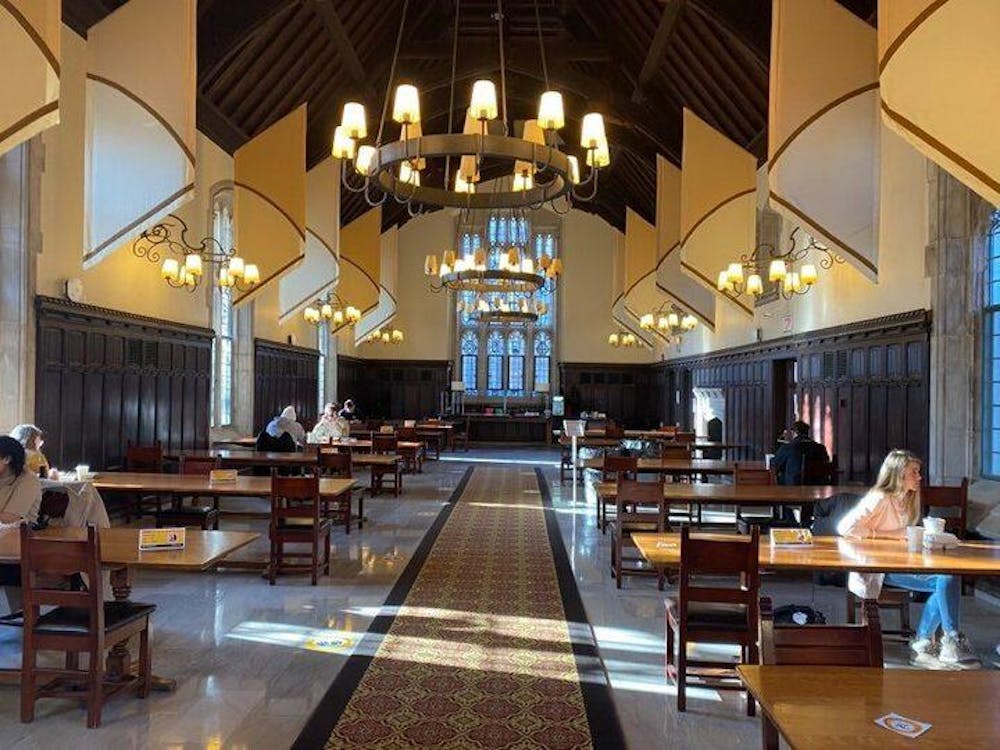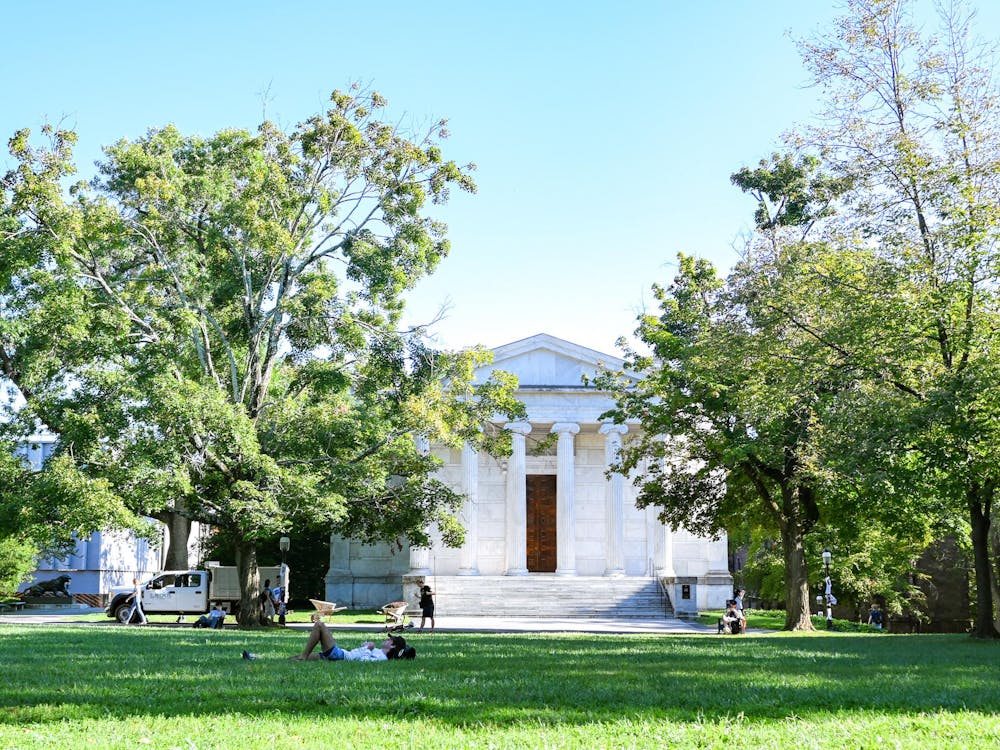“Tell me a subject that’s bigger than Stalin,” Stephen Kotkin asked in his office on Thursday. “30 years in power. Military industrial complex. Victory over Hitler in World War II. The Cold War. Gold standard for dictatorship. A biography of Stalin is almost like a history of the world.”
Kotkin, the John P. Birkelund '52 Professor in History and International Affairs, celebrated the hundredth anniversary of Russia’s October Revolution of 1917 with the release of his newest book, Stalin: Waiting for Hitler, 1929-1941, the second volume in a three-part biography of Soviet leader Joseph Stalin. The period covered, 1929 to 1941, discusses Stalin’s brutal methods for consolidating Russia into a fully communist state. As the title implies, the book ends with Stalin’s entry into World War II.
History professor Joseph Fronczak seemed to be especially struck by the unique ambition of the project and the amount of context Kotkin offers. “Most historians have one scope and they stick to it,” said Fronczak. “What’s special about the book is that it’s a biography, but also world history. It’s very rare.”
Similar to Russia’s government today, the Soviet regime was opaque about its leaders. The fall of the USSR in the 1990s and a spark of transparency in the early 2000s, however, have since allowed Stalin’s personal archives to be studied. Kotkin is one of the first English-speaking academics to look extensively into this material.
“You have a cornucopia of new information that needs to be assimilated and integrated into a coherent story,” continued Kotkin, “The problem is to do all that work.”
This “cornucopia” has warranted a biography-turned-epic. The second volume, similar to the first, runs nearly 1,000 pages.
Despite all this documentation, however, the Soviet regime was not known for its honesty. When asked about how he verified sources, Kotkin explained how Soviet dishonesty was actually integral to his work.
“Yeah, they lied. All the time. This is a mendacious regime,” he said. “But if you look at the secret documents, you can decode and get to the bottom of their behavior. The information that they shoved out into the public realm is very close to how their minds worked, and how policy was formulated.”
Before asking a reader to jump into a 1,000-page marathon, Kotkin explains that there are no precise lessons that should be gained from the book. He did explain, however, that Stalin is influential in Russian politics and culture today. When asked whether his biography coincided with the Russian narrative of Stalin, Kotkin explained that there is not one “Russian narrative of Stalin.”
“There’s the regime Stalin and the popular understanding of Stalin,” he said. “They don’t fully coincide.”
For political convenience, Kotkin said, the regime of current Russian president Vladimir Putin has whitewashed Stalin. Stalin was not an anti-capitalist, or even Communist. Stalin was the leader that made Russia an international power.
“He's not a man who engages in gratuitous mayhem, murdering everyone in sight,” said Kotkin, “[The Putin regime] instead paints him as the great leader, the statesman, the great arbiter of world affairs, the victor of World War II, the man who presided over the spoils of the war with Roosevelt and Churchill.”

Kotkin describes Russia’s popular understanding of Stalin as ambivalent. Russians have accepted that Stalin might have killed and imprisoned many of his own people, but his victories have outweighed his disturbing record.
“People think ‘He killed my grandfather’ or ‘He imprisoned my grandmother,’” said Kotkin. “You could go on. Many, many people alive today — their families were affected by Stalin’s terror, deportations, famines.”
Unlike the clean, patriotic version of Stalin presented by the Russian government, society’s version accepts his acts as a necessary evil. According to a Russian poll conducted last June, Russians consider Stalin “the most outstanding” figure in world history. The Russian literary figure Alexander Pushkin is tied for second with Vladimir Putin.
Kotkin’s extensive biography may be one important key to understanding modern Russia. The debut of the new book has brought praise from colleagues and students alike.
“His expertise on Stalin is unmatched,” said Connor Pfeiffer ‘18, a student of Kotkin and a student in the Program in History and the Practice of Diplomacy, which Kotkin co-directs. “I look forward to reading this new volume.”
Pfeiffer is a member of the ‘Prince’ editorial board.
Kotkin similarly seems to be proud of the work he’s accomplished. When asked what has motivated him through this three volume epic, he said, “I love research. I love writing. I love teaching. I love archives and libraries. I have to be learning. I’m in my 29th year here at Princeton, and I’m still learning. Thank God.”








